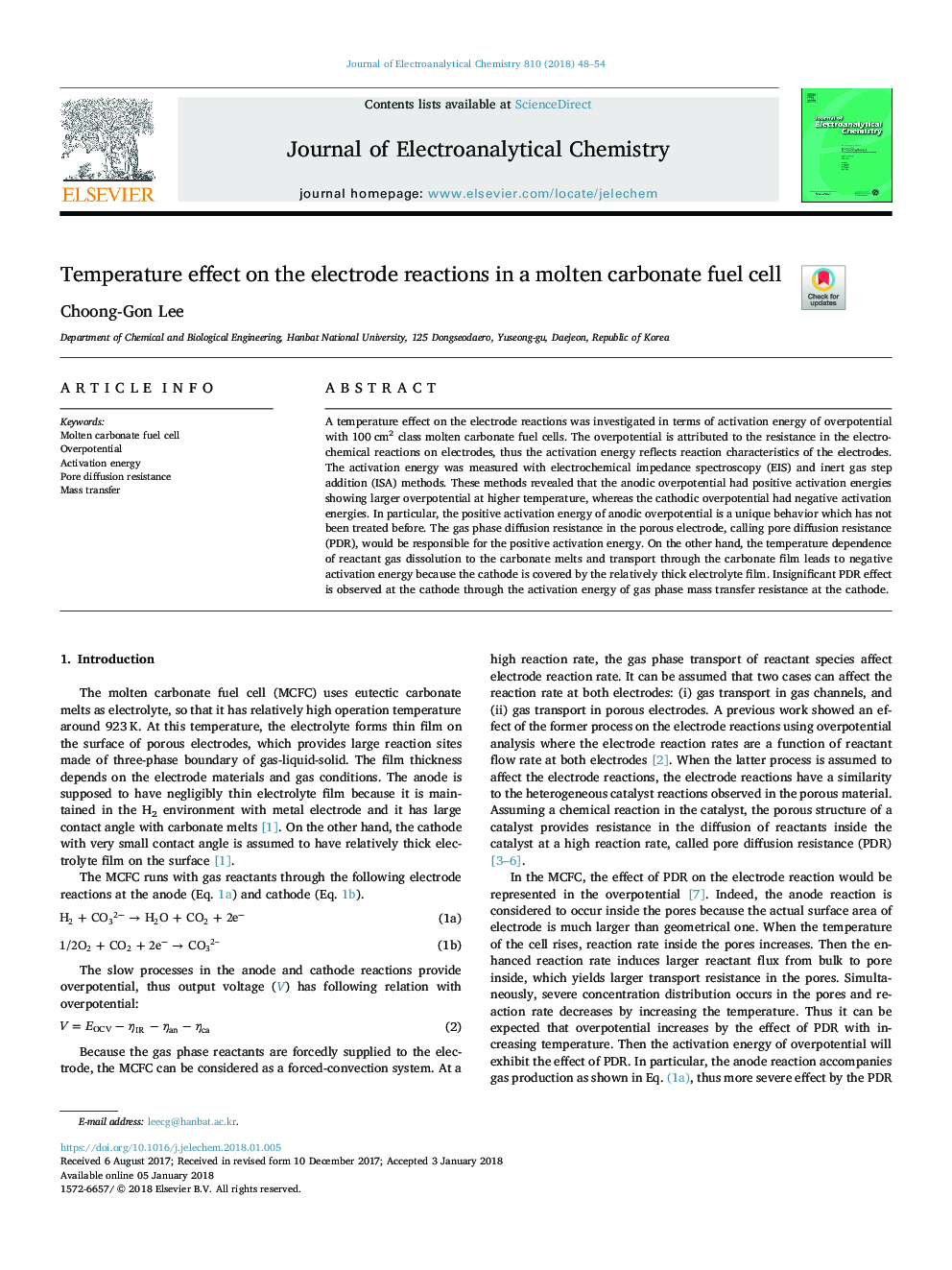| Article ID | Journal | Published Year | Pages | File Type |
|---|---|---|---|---|
| 6662124 | Journal of Electroanalytical Chemistry | 2018 | 7 Pages |
Abstract
A temperature effect on the electrode reactions was investigated in terms of activation energy of overpotential with 100Â cm2 class molten carbonate fuel cells. The overpotential is attributed to the resistance in the electrochemical reactions on electrodes, thus the activation energy reflects reaction characteristics of the electrodes. The activation energy was measured with electrochemical impedance spectroscopy (EIS) and inert gas step addition (ISA) methods. These methods revealed that the anodic overpotential had positive activation energies showing larger overpotential at higher temperature, whereas the cathodic overpotential had negative activation energies. In particular, the positive activation energy of anodic overpotential is a unique behavior which has not been treated before. The gas phase diffusion resistance in the porous electrode, calling pore diffusion resistance (PDR), would be responsible for the positive activation energy. On the other hand, the temperature dependence of reactant gas dissolution to the carbonate melts and transport through the carbonate film leads to negative activation energy because the cathode is covered by the relatively thick electrolyte film. Insignificant PDR effect is observed at the cathode through the activation energy of gas phase mass transfer resistance at the cathode.
Related Topics
Physical Sciences and Engineering
Chemical Engineering
Chemical Engineering (General)
Authors
Choong-Gon Lee,
